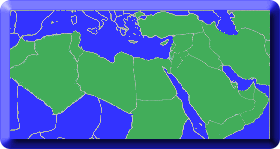
Topics in Middle Eastern and North African Economies
Document Type
Article
Publication Date
9-1-2023
Journal Title
Topics in Middle Eastern and North African Economies
Volume
25
Issue
2
Publisher
Middle East Economic Association and Loyola University Chicago
Abstract
While there is a long history of studies investigating the effects of oil curse on growth, and links thereto via various institutional characteristics like democracy, susceptibility to corruption and political instability, and macroeconomic policies including exchange rates, only quite rarely have these been extended to effects on entrepreneurship at the individual level. Even among the relatively few studies that have done so, seldom have such studies examined the effects of changes in the relevant variables over time. The purpose of this paper is to examine an even wider range of factors (at both the individual and national levels) affecting entrepreneurial startup decisions among relevant individuals in a panel of 16 countries over the years 2005-2018. The panel takes advantage of the two different high quality data sets provided by the Global Entrepreneurship Monitor (GEM), namely the Adult Population Survey (APS) which provides comparable data on panels of individual adults in each country and survey year, and the National Expert Survey (NES) which provides parallel panel data on relevant educational and institutional conditions at the country level. The analysis investigates, first, the determinants of the individual’s motives for starting a business and, then, the role of these motives, other individual characteristics including gender, age, education, and skills, and a wide variety of institutional characteristics, in determining, not only actual startups, but also in-progress startups, and startups anticipated in the next three years. The relatively long time-span of the data on each of the selected countries and the fact that the country sample is quite evenly split between oil and non-oil countries allows us to analyze the effects of changes in circumstances over time and to distinguish between those in oil exporting countries and non-oil countries. The results provide strong support for (1) the greater importance of “opportunity”” over “necessity” as a motive for entrepreneurial startup, (2) the relevance of a large number of other individual and institutional factors changing over time that affect startup at different stages of startup, (3) the extent to which and how they vary between oil exporting and non- oil countries, but also (4) the absence of any real oil curse on entrepreneurship. They also point to important policy reforms that could raise both the incidence and degree of success of entrepreneurial startups in both oil and non-oil countries
ISSN
2334-282X
Recommended Citation
Nugent, Jeffrey B.; Guo, Runnan; and Zhao, Xinlu, "Determinants of Entrepreneurial Startup: How Do They Differ Between Oil and Non-Oil Exporting Countries and How Have They Changed Over Time". Topics in Middle Eastern and North African Economies, electronic journal, 25, 2, Middle East Economic Association and Loyola University Chicago, 2023, http://www.luc.edu/orgs/meea/
Creative Commons License

This work is licensed under a Creative Commons Attribution-Noncommercial-No Derivative Works 3.0 License.
Copyright Statement
© The Author(s), 2023



Comments
Presentation of the articles in the Topics in Middle Eastern and North African Economies was made possible by a limited license granted to Loyola University Chicago and Middle East Economics Association from the authors who have retained all copyrights in the articles.